In last night's Love Island, a recurring theme reared it's ugly head yet again. When Belle Hassan chose to forgive Anton Danyluk for his toxic 'laddy' behaviour, she began questioning her own behaviour and apologising for the way she confronted him, pointing to her own insecurities as the reason she got so angry. In a scene that saw viewers rush Twitter with commentary about how she wasn't in the wrong at all, the conversation proved a longstanding concern with the way female Islanders respond to bad behaviour from the Love Island men: they always blame themselves.
‘Can you give me some feedback?’ was the fateful line we saw earlier in the season, when newly dumped Amy Hart made that request of everyone’s least favourite professional ballroom dancer, Curtis Pritchard. Female viewers across the country wailed a collective, ‘Noooo!’ at the sight of a perfectly nice woman politely asking the man who had spent four weeks pretending to like her, then ditching her, what she could do to make sure her next boyfriend didn’t do the same was excruciating.
Watching him completely ignore the accepted norm of muttering, ‘It’s not you, it’s me’, and instead go on to give her a list of her failings was even more galling. While we might all have hoped that Amy would tear him to shreds before making a beeline for the far more mature Ovie, she did what so many of us have done before and made Curtis’s behaviour her fault. Even her departure last week was designed to make sure she wasn’t getting in his way. After telling him he was a ‘good person’ and that she loved him, she said, ‘You’re not going to be happy while I’m still here.’
The narrative appeared again, across multiple different conversations, with Michael and Amber. When Michael went from being the most loyal man in the villa to love ratnumber one, we saw Amber desperately pleading with the girls to tell her what she’d done wrong and accepting Michael’s assertion that he’d strayed because she wasn’t willing to trust him. An instinct, it turned out, she was right to heed. Even Maura, usually 5ft9in of pure self-esteem, has spent this week wondering if her lack of suitors is down to her rather than the fact that there simply isn’t a man in the villa who can match her.
And, as much as I wanted to storm the island and make them all listen to Lizzo on repeat, I couldn’t help but find myself recognising some of my own behaviour in the girls. In my twenties I spent far too much time agonising over the things I could do to bring a rogue ex-boyfriend back to me – never mind that by the time I’d done all of them I’d have changed myself so much he probably wouldn’t recognise me. But this behaviour doesn’t just show up in romantic relationships – and it isn’t restricted to 20-somethings. We’ve been so indoctrinated into the cult of self-improvement that we’re doing it in all areas of our lives. When a project at work hasn’t gone as well as we hoped, who among us hasn’t agonised over what might have happened if we’d made it just a little bit more perfect? Or, when a friend or colleague seems out of sorts, wondered if it could have been something we said?
These blame pains, however, don’t seem to be afflicting the boys. Recently, I was chatting to a male friend of mine about a job interview he’d had. ‘I didn’t get the job,’ he shrugged. ‘I think I was just too expensive for them.’ There was no wondering whether he might have got it if only he’d had a few more years’ experience, or beating himself up for not having the right answer to the final question. So convinced was he that the problem lay with them rather than with him, that when he found out he’d been rejected he just sent them a polite note thanking them for their time and asking them to get in touch when they had a more suitable role. Unlike every woman I know who failed to get her dream job, there was no request for feedback.
So why are women so intent on blaming themselves for everything? Research from Northumbria University has confirmed that while men tend to externalise their mistakes – that is, blame anything other than themselves for it – women tend to internalise it. My theory is that this stems from the socialisation of women as peacekeepers. From an early age we’re taught to look out for other people’s feelings, to avoid making mistakes or upsetting others, and so when we see pretty much anything going wrong we instantly turn the blame on ourselves. But this self-flagellation is getting in the way of real growth and, frankly, happiness.
We could behave like the men on Love Island and deny that anything is our fault, ever – watching them all wiggle out of responsibility for their actions has been a depressing masterclass in bending the truth – but I suspect we’d be better off finding a middle ground. Ultimately, we all need to learn to accept responsibility for our part in situations going wrong – and we need to hold others accountable for theirs, too. Hopefully this latter part is something Amy and Amber will learn when they reflect on their Love Island experience in the future. After all, it takes two to tango. Something you’d think Curtis would know.
Read more: The best Twitter reactions to Love Island 2019...
Click through to see the best Twitter reactions to Love Island 2019...
 1 of 36
1 of 36love island twitter
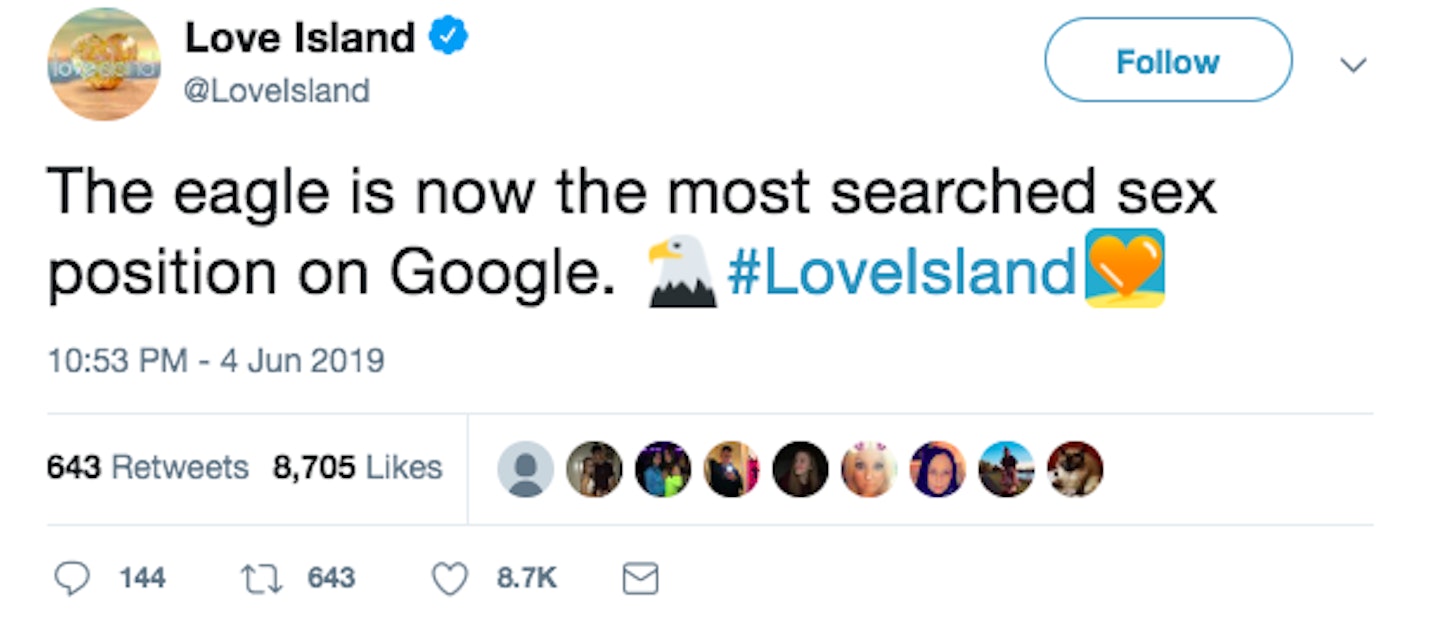 2 of 36
2 of 36love island twitter
 3 of 36
3 of 36love island twitter
 4 of 36
4 of 36love island twitter
 5 of 36
5 of 36love island twitter
 6 of 36
6 of 36love island twitter
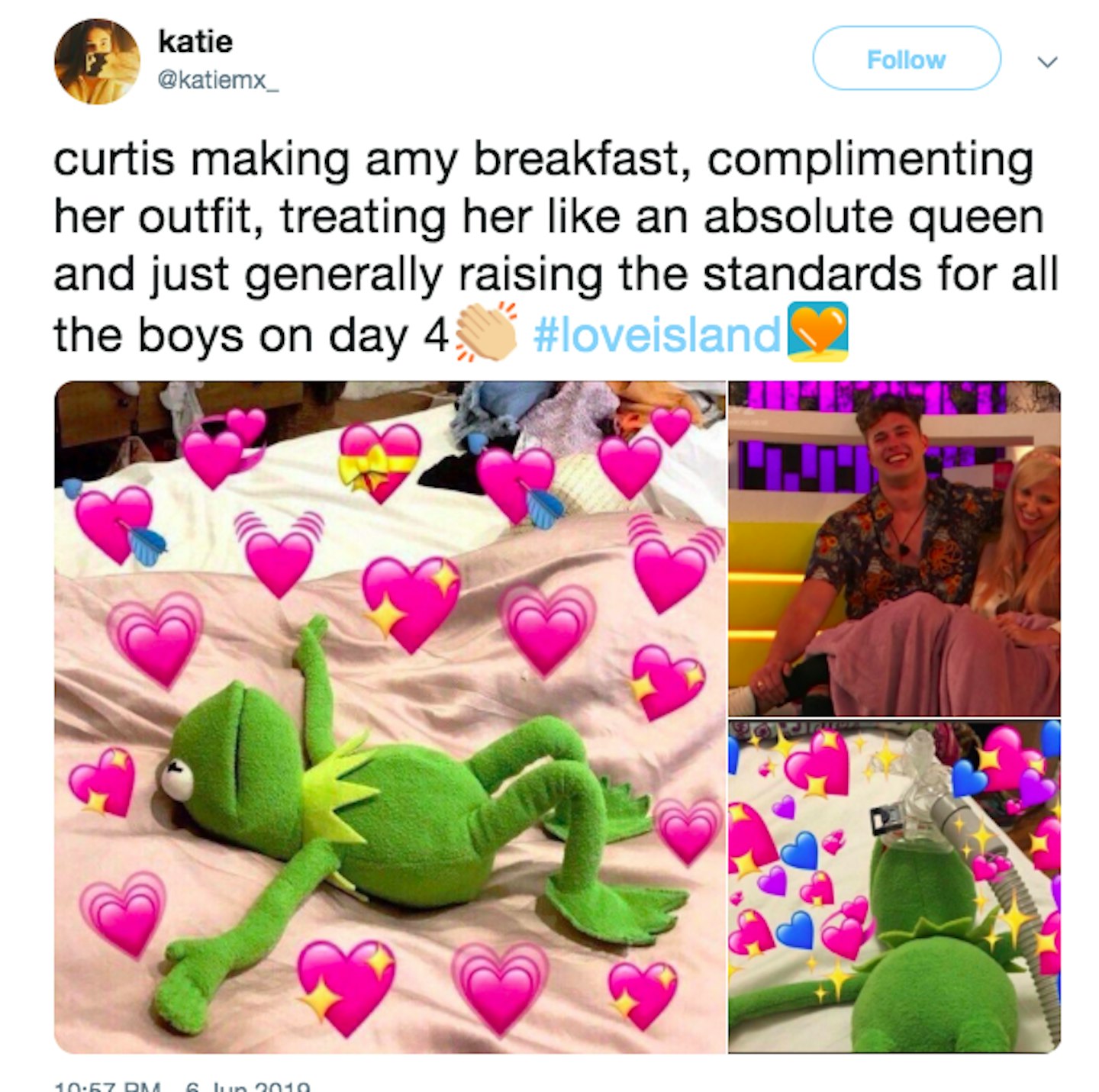 7 of 36
7 of 36love island twitter
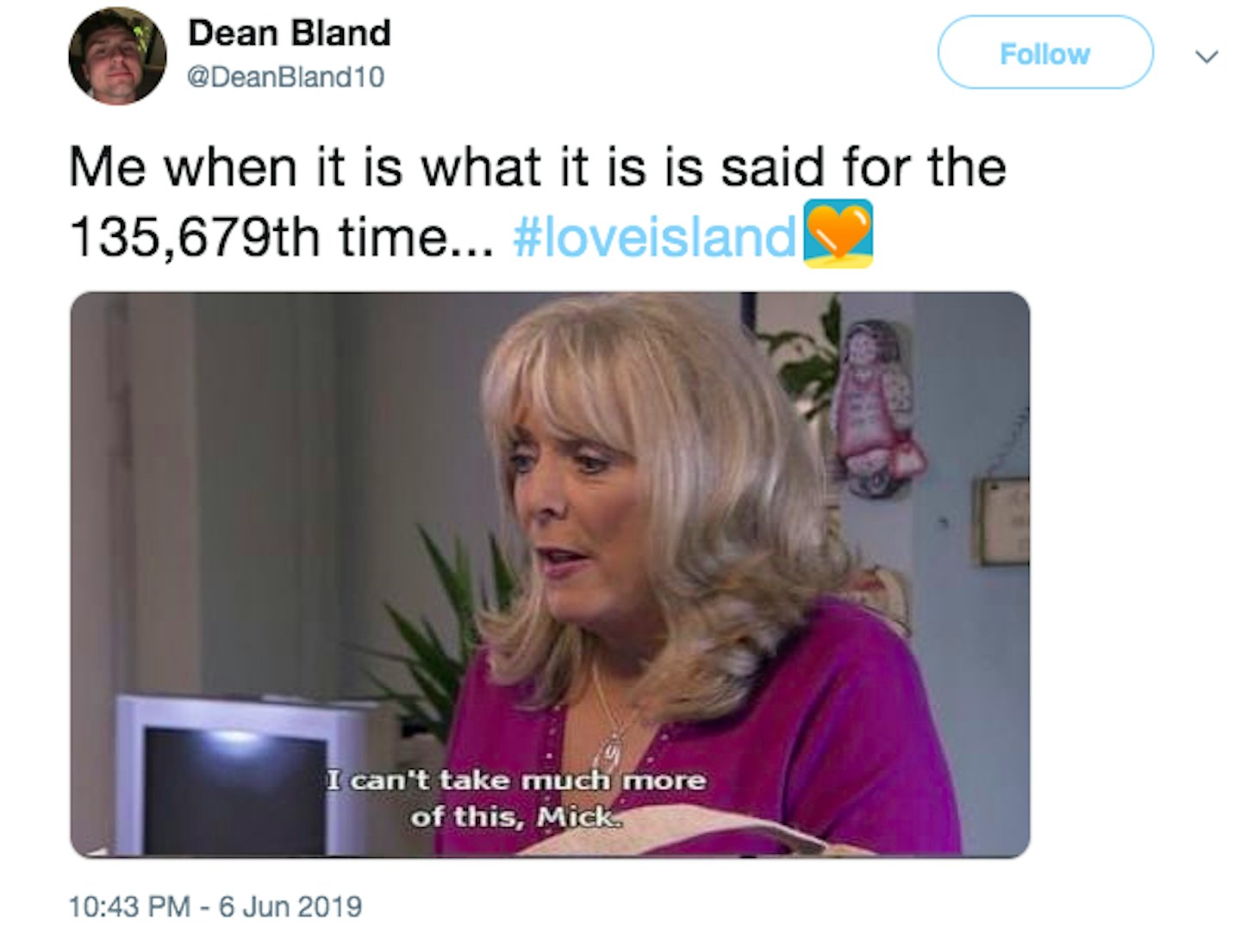 8 of 36
8 of 36love island twitter
 9 of 36
9 of 36love island twitter
 10 of 36
10 of 36love island twitter
 11 of 36
11 of 36love island twitter
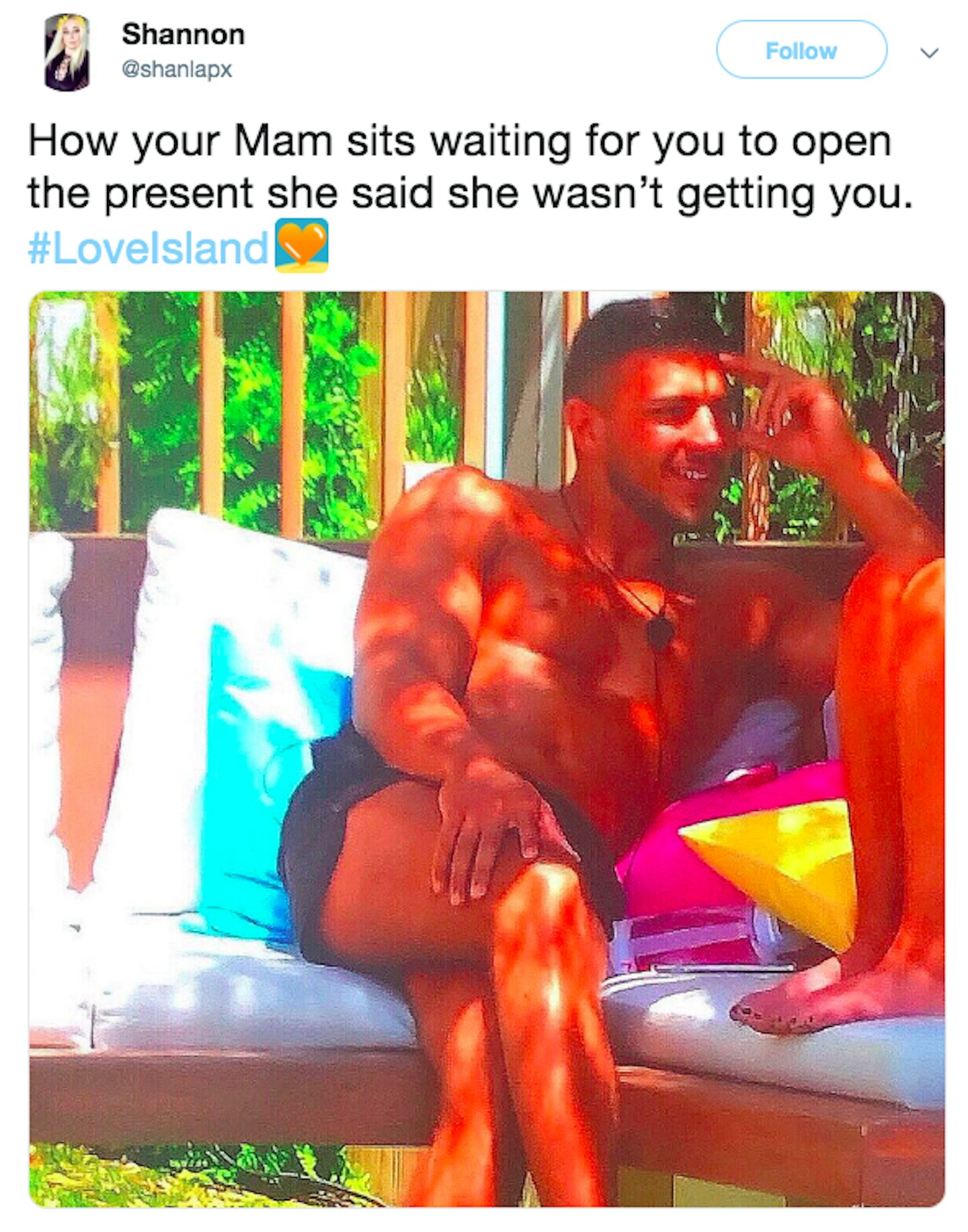 12 of 36
12 of 36love island twitter
 13 of 36
13 of 36love island twitter
 14 of 36
14 of 36love island twitter
 15 of 36
15 of 36love island twitter
 16 of 36
16 of 36love island twitter
 17 of 36
17 of 36love island twitter
 18 of 36
18 of 36LOVE ISLAND TWITTER
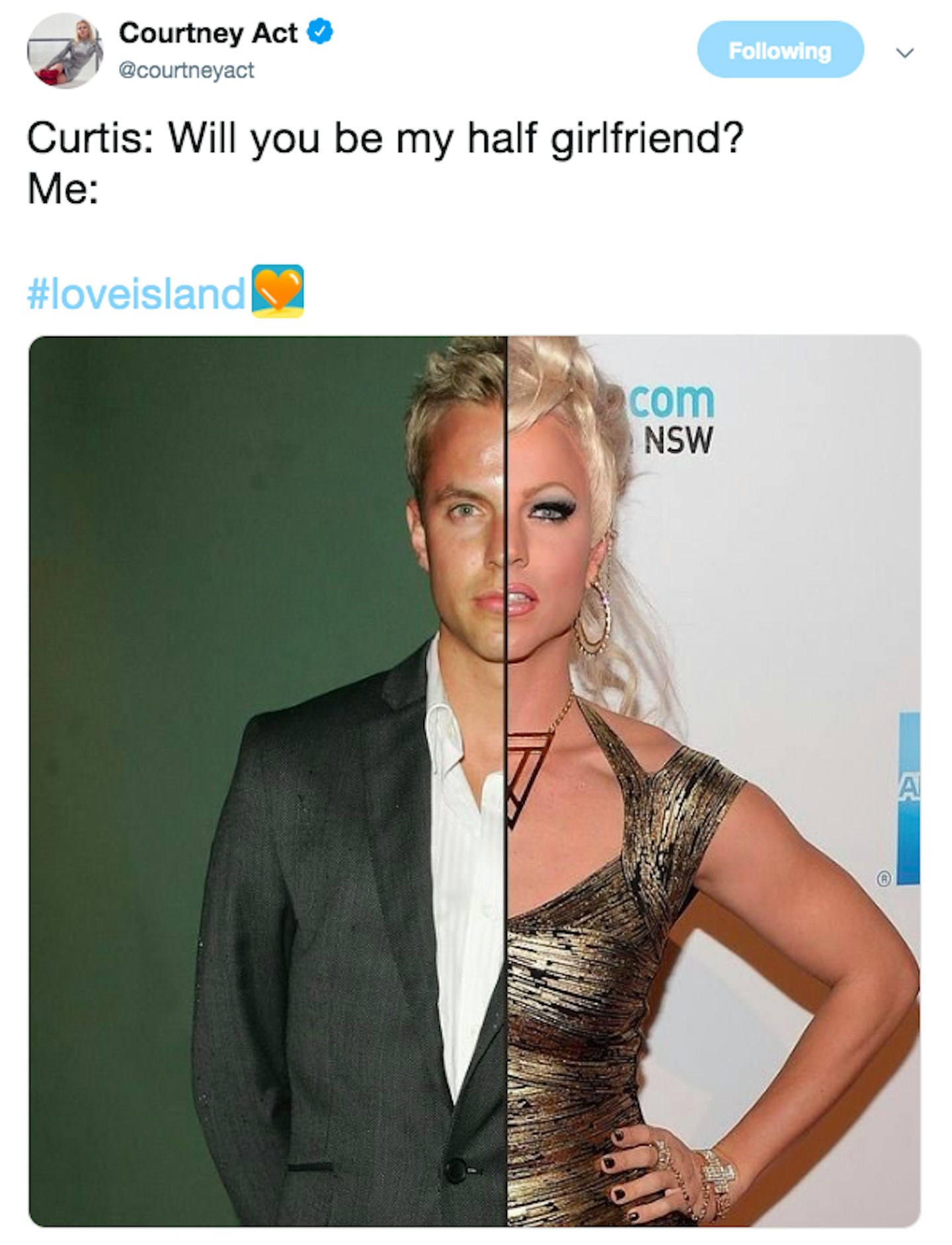 19 of 36
19 of 36LOVE ISLAND TWITTER
 20 of 36
20 of 36LOVE ISLAND TWITTER
 21 of 36
21 of 36love island twitter
 22 of 36
22 of 36love island twitter
 23 of 36
23 of 36love island twitter
 24 of 36
24 of 36love island twitter
 25 of 36
25 of 36love island twitter
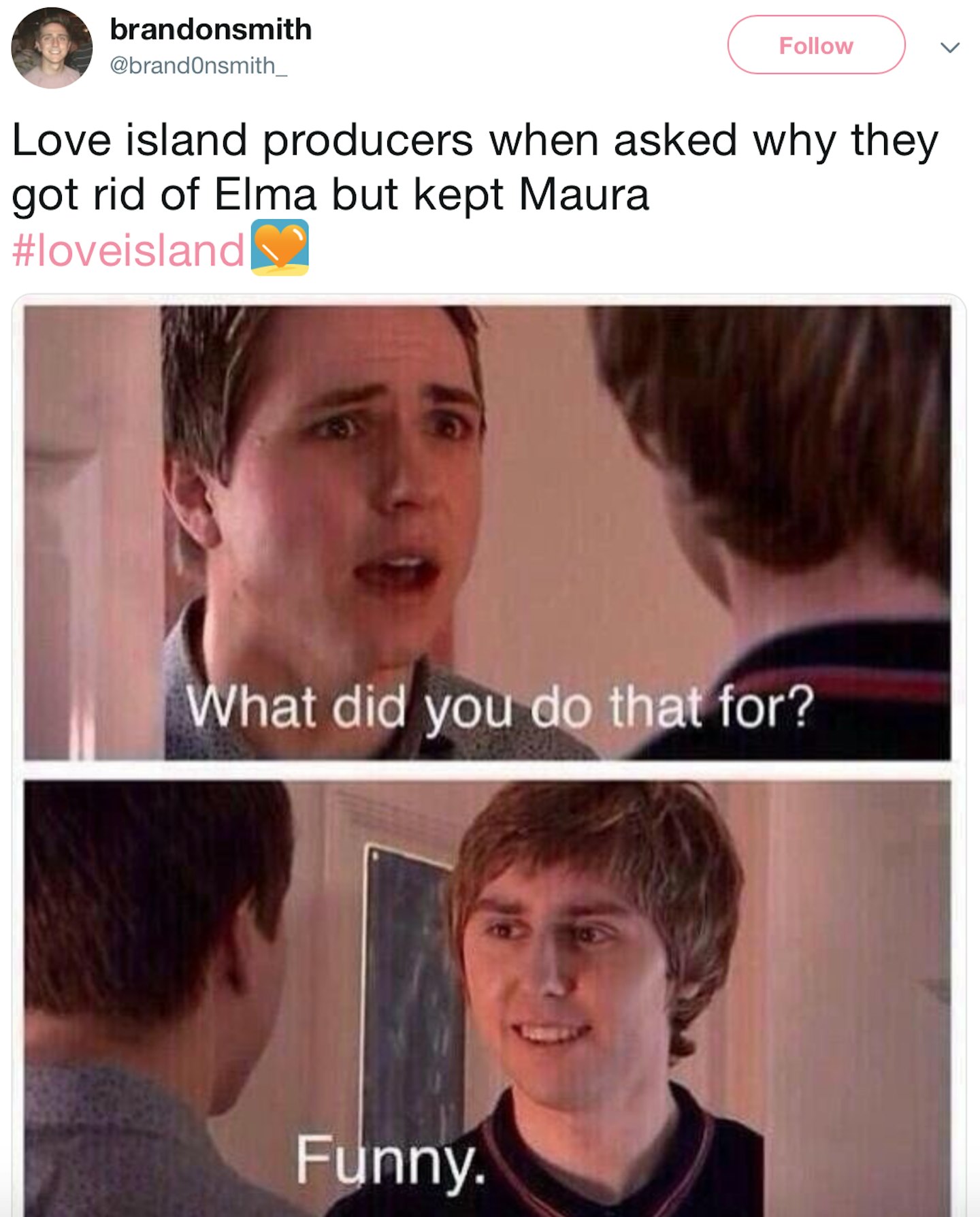 26 of 36
26 of 36love island twitter
 27 of 36
27 of 36love island twitter
 28 of 36
28 of 36love island twitter
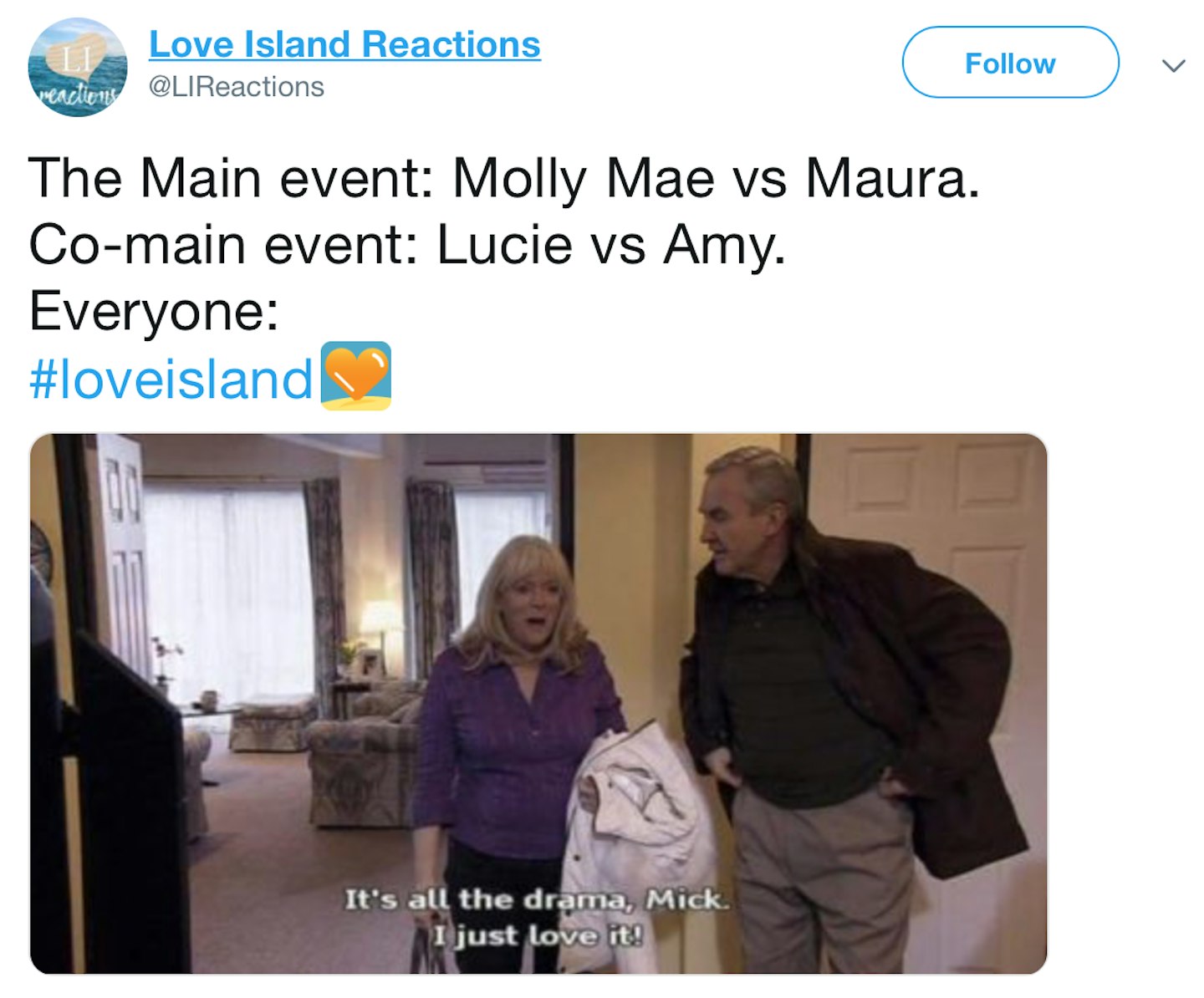 29 of 36
29 of 36love island twitter
 30 of 36
30 of 36love island twitter
 31 of 36
31 of 36love island twitter
 32 of 36
32 of 36love island twitter
 33 of 36
33 of 36love island twitter
 34 of 36
34 of 36love island twitter
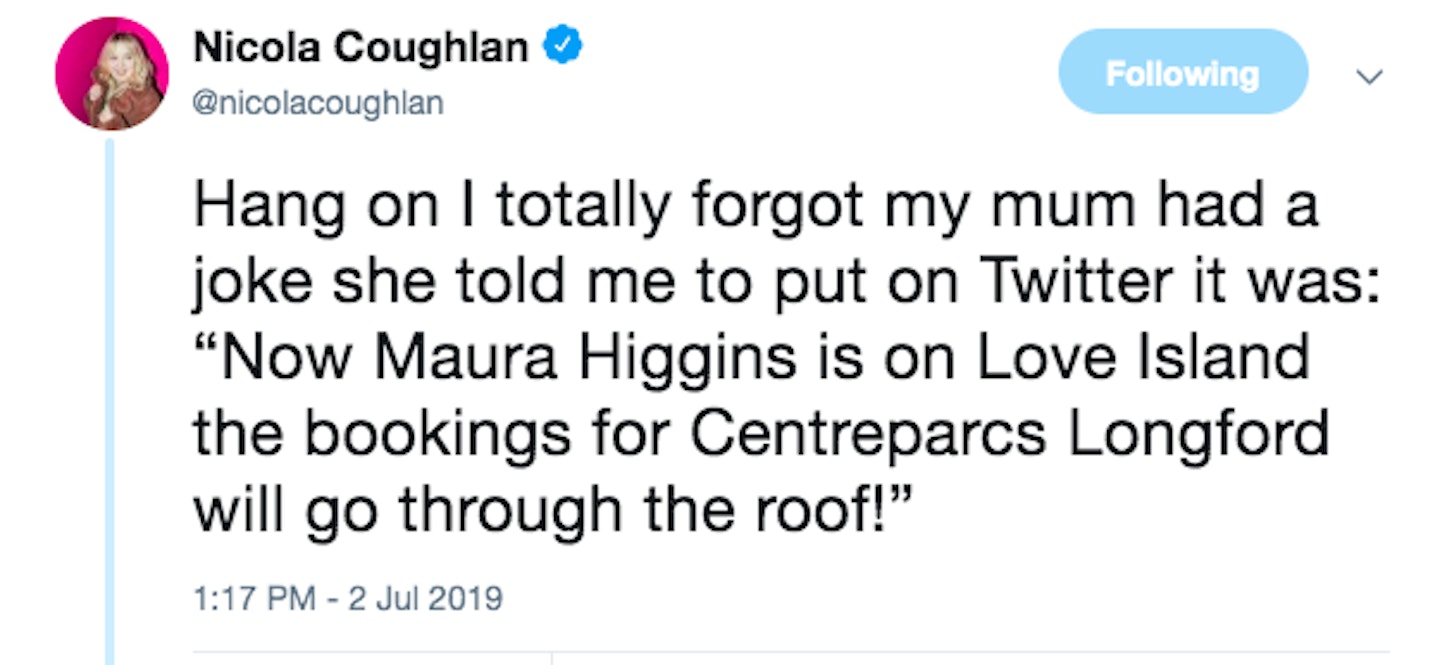 35 of 36
35 of 36love island twitter
 36 of 36
36 of 36